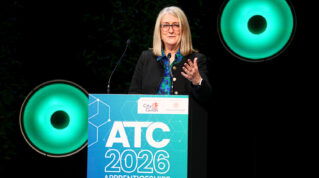Recently, stakeholders across FE and community learning have highlighted the potential impact of the department for education’s FE Funding and Accountability Consultation, which closed on 12 October.
The DfE proposes that a new set of outcome measures should apply to non-qualification provision, including entering employment or moving closer to the labour market. HOLEX policy director, Susan Pember warns that “these proposals, if implemented, would lead to a loss of a vast number of critical adult education courses” affecting some 300,000 adult learners or more.
Meanwhile, in our new discussion paper, ‘Bringing it All Back Home’, Sam Freedman recommends that the DfE should ensure its proposals don’t reduce family learning provision by forcing providers to focus on labour market outcomes.
Family learning provision is funded through the Adult Education Budget (AEB). It supports parents to engage in their children’s education and development from early years through to FE. And crucially, it often provides a vital first step back into learning for adults, especially for those who are economically inactive and who may be far from the labour market.
For many parents, helping their children is a powerful motivator to get involved in learning.
Family learning is therefore not only a driver of positive outcomes for children, but also for adults. And like adult education, there are multiple and wide-ranging outcomes too. From building parents’ own confidence in learning and widening aspirations for them and their children, to supporting better health and wellbeing and better finances, to developing new skills and progressing into FE.
Family learning acts as a bridge into mainstream FE
For example, our family finance programme for parents with English as an Additional Language resulted in 98 per cent of parents changing how they dealt with money, and 91 per cent of their children said it helped them too.
For adults who lack confidence and motivation to sign up directly for college courses, family learning programmes act as a positive bridge into mainstream FE. The experience of running family learning outreach programmes for a college demonstrates this: 24 parents in one school alone completed teaching assistant qualifications in FE, a direct result of taking family learning courses.
Parents who take family learning courses have varied needs and skills levels. The strength of family learning provision is that it can be shaped to the needs of the community. For people who lack confidence and aspiration, learning journeys are often not linear. Moving into further learning and employment for them is not an immediate step, though it may be a longer-term result of first engaging in family learning – which is why we need to protect the provision that offers a step back into learning.
Campaign for Learning shares the concerns of stakeholders across FE and community learning. Family learning provision is usually non-qualification based. The proposed measures are inappropriate for family learning where the emphasis is on children and parents improving learning outcomes together; they put its funding and participation at stake.
We must ask why the DfE proposes to prescribe outcome measures for non-qualification bearing provision, given the extent of the application nationwide. More and more areas of England are being granted devolution deals which cover the Adult Education Budget that funds family learning.
The assumption is that devolved authorities will determine how much to spend on family learning and the outcome measures which should apply. Given that most of the country will be covered by devolution deals, there seems little point in the DfE prescribing outcome measures that will include family learning in a limited number of areas.
We need to retain the flexibility and decision-making capacity of local areas and providers so that they can respond to the needs of families in their communities – especially at a time of flux.
This must mean flexibility of outcomes too.

















Your thoughts